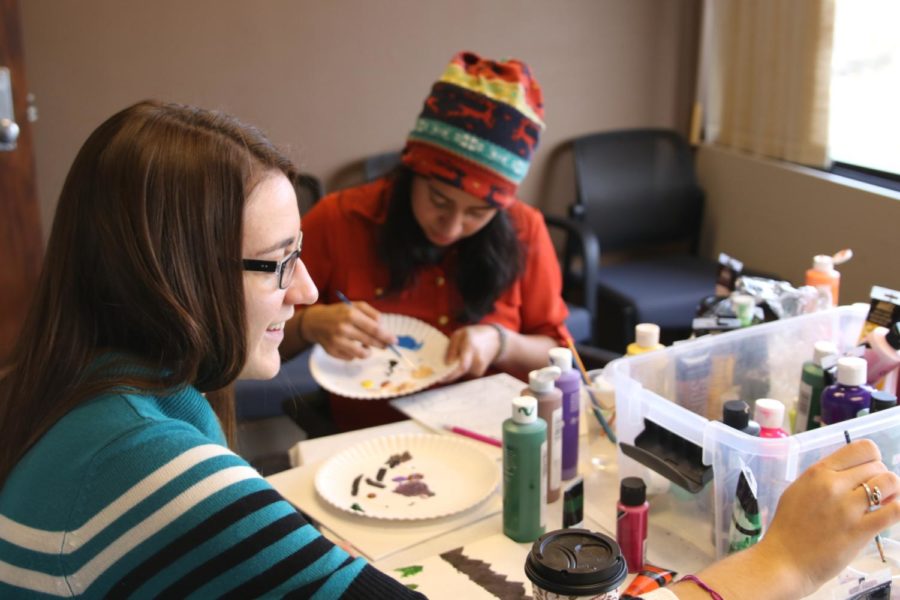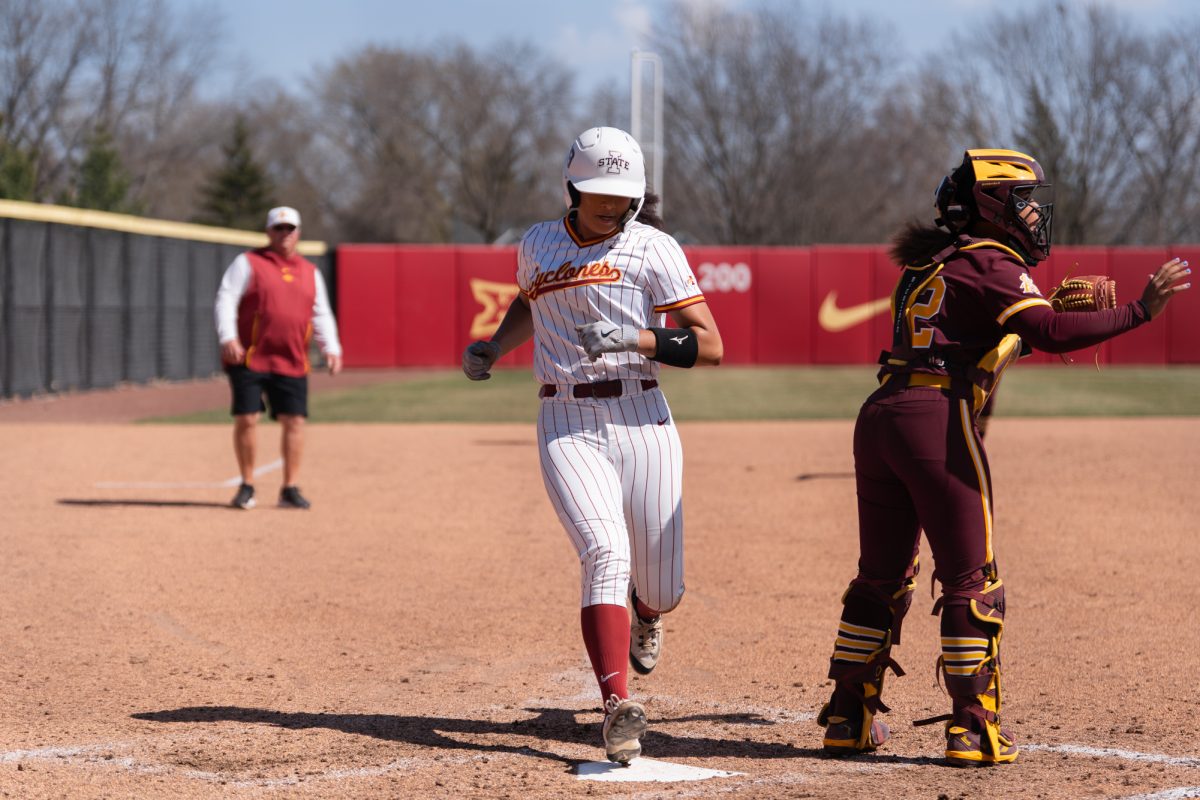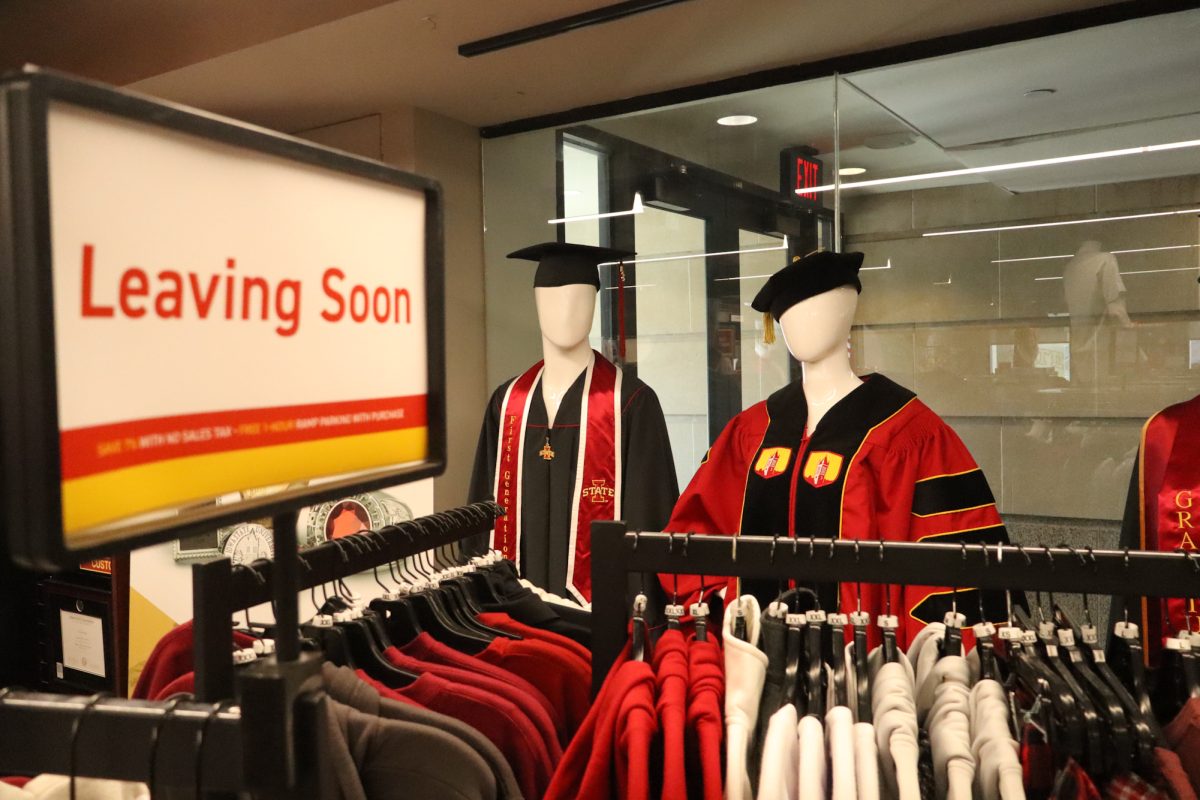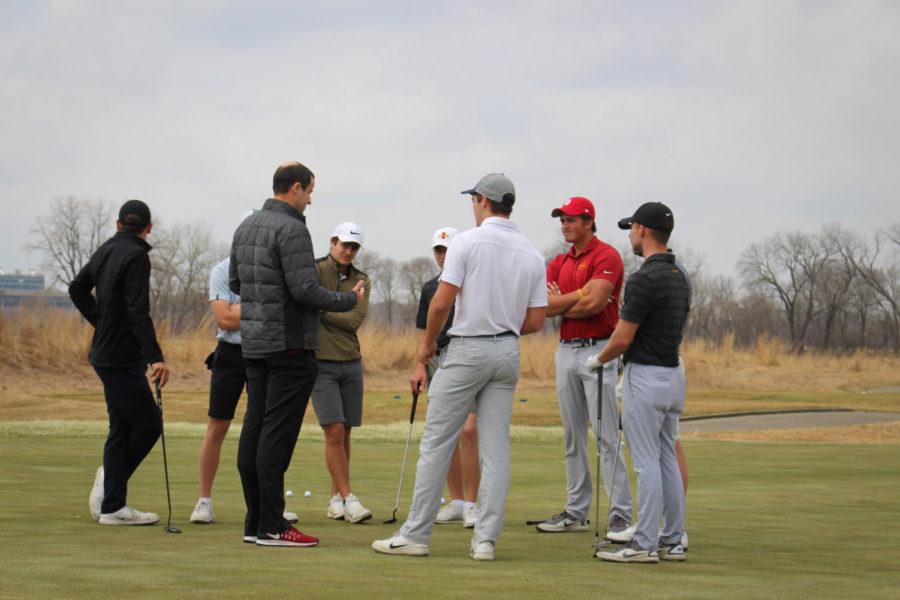WiSE encourages women in STEM to persevere
Katelyn Fritz and Perla Carmenate, both apart of the WiSE Program, take study breaks by painting canvases in Carver Hall on Dec. 7 during Dead Week. The Women in Science and Engineering Program brings awareness to women in these majors and offers opportunities to network and build community. Fritz likes how laid back it is, and likes canvas painting as a study break. Like Fritz, Carmenate’s favorite part is the peace and that it relieves stress from tests.
February 23, 2017
About 5,000 women are enrolled in science, technology, engineering and math (STEM) majors at Iowa State, according to statistics provided by Iowa State’s Program for Women in Science and Engineering (WiSE).
Lora Leigh Chrystal, director of WiSE, said that it will only take four semesters for many of these women to change their majors, usually before they have had an internship or co-op. They are making these changes before they really know what engineering is like.
“[There] are subtle ways we tell women that math and science aren’t for them. By the time they hit high school, despite doing just as well as boys on most of the math and science exams … in some cases even outperforming males, they aren’t choosing these majors at the undergraduate level,” Chrystal said.
WiSE has been working to increase the representation of women in STEM fields for more than 30 years. The organization seeks to help navigate the academic pathway and eliminate social barriers. At the K-12 level, WiSE provides educational opportunities.
At the undergraduate level, it provides retention efforts. In addition to the recruitment, retention and graduation of women in STEM majors, they collaborate with about 50 different majors at Iowa State from four different colleges.
Chrystal has been working for the university for 17 years. She said WiSE has noticed that problems aren’t witnessed in single interactions. The issues occur in a multitude of interactions that tend to shake confidence over time.
“30 years ago, when the program was founded, many of the issues were very overt,” Chrystal said. “Now, a lot of students have [a lot of] small ways in which women aren’t welcome into different environments. [They] end up adding over time.”
Chrystal said women who participate in their learning community, as well as WiSE, show extreme success at the undergraduate level. For WiSE, it is just a matter of getting students to choose the major and take advantage of these programs.
Nichelle’Le Carrington, graduate assistant in the department of electrical and computer engineering, said women in the field of engineering face a lot of challenges, but she encourages them to persevere.
“I will always encourage [others] to keep going,” Carrington said. “No matter how much I face, I know I can’t give up because there are other people in engineering looking for me to make it. It’s like a sisterhood.”
WiSE also focuses on whether women graduate with a STEM degree for the right reasons. The program wants to make sure that when students leave, they are leaving because it’s what they want to do, not because they feel like they can’t do it or the environment is unfriendly.
“We’ve been blaming women for a long time, but it’s the environment in which they are learning, living and working,” Chrystal said. “We need to fix it.”







